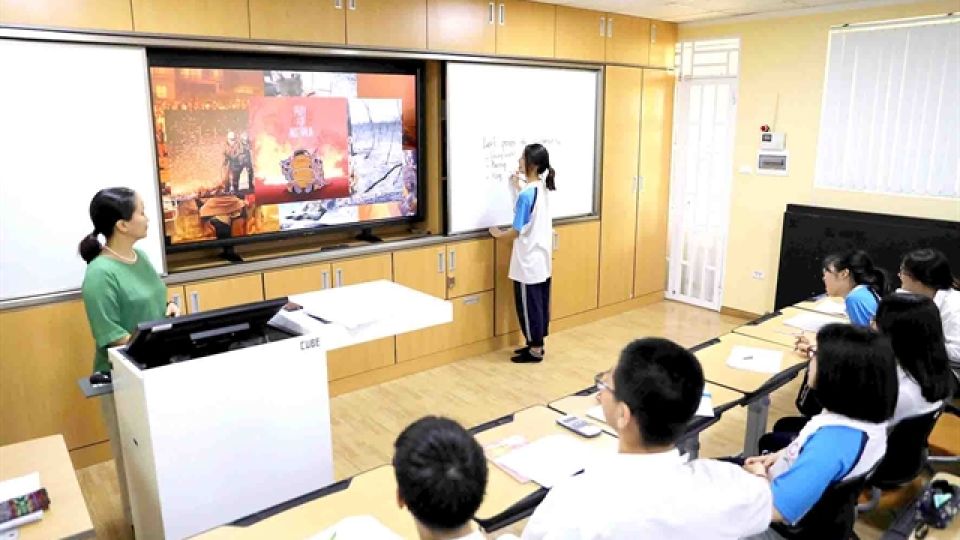October 4, 2024
HANOI – The Ministry of Education and Training is aiming to improve the foreign language proficiency of students and gradually move to making English the second language in schools, to promote international integration and meet the demands of enhancing the quality of the workforce in this new era. Nguyễn Thị Việt Nga, a member of the National Assembly’s Committee on Culture and Education, spoke with VOV about the challenges and necessary steps to achieve this goal.
Can you explain the difficulties the education sector will face in making English the second language in schools?
In Việt Nam, this initiative seems difficult to implement, even though the education sector has made significant efforts. In my opinion, there are a few key issues.
First, we need to review our training programmes. Currently, English programmes are designed more academically than practically. Vietnamese students often excel in international language certification exams, but this is because they are trained academically without focusing on real-world language use. This is why many students struggle when it comes to applying the language in real situations.
Second, we need to reconsider the environment in which English is used. A foreign language needs practice and a proper environment to become fluent, otherwise, knowledge fades and students return to the starting point.
How can we address the inequality between students in different areas when it comes to learning and practising English in schools?
Of course, there are differences between urban and rural environments. However, being in rural or remote areas doesn’t mean students don’t have the opportunity to learn foreign languages or can’t excel in them.
Many have witnessed young students in mountainous or remote regions, particularly in popular tourist spots like Sa Pa, confidently speaking English and interacting fluently with foreigners. Meanwhile, students in larger cities may score highly in English exams but struggle with confident and natural communication in English with foreigners.
Besides, several other factors, such as context and opportunities for practising and improving language skills, play a key role in determining students’ foreign language proficiency.
Today, even in rural or remote areas, internet access and smart devices are widely available. Students have various channels to learn foreign languages and teachers have many ways to support better foreign language teaching. So, I don’t think we should worry too much about this.
What factors does the educational sector needs to consider when making English the second language in schools?
To establish English as a second language, we must first consider the roadmap and steps for implementation. We need to determine how to use English effectively so that it truly becomes the second language, rather than simply declaring it so.
Việt Nam is currently undergoing deep international integration and while English is a common language, there are many other languages from different countries to consider. We should not overly focus on English and equate foreign language learning solely with learning English. Doing so could lead to an imbalance and create certain barriers.
We should avoid an extreme approach like the one seen between 2009 and 2013-2014.
In higher and postgraduate education, there is a requirement for English proficiency for graduation. However, when students enter university, they are allowed to take exams in five languages: English, Russian, French, German and Chinese. But for graduation, only English is required. This creates a significant waste, as students studying other languages are forced to switch to English, often delaying the completion of their master’s or PhD programmes due to the lack of an English certificate.
In the current period of international integration, I hope that foreign language education will receive equal attention and development, tailored to the needs, interests, abilities and local conditions of each region and school. — VNS


